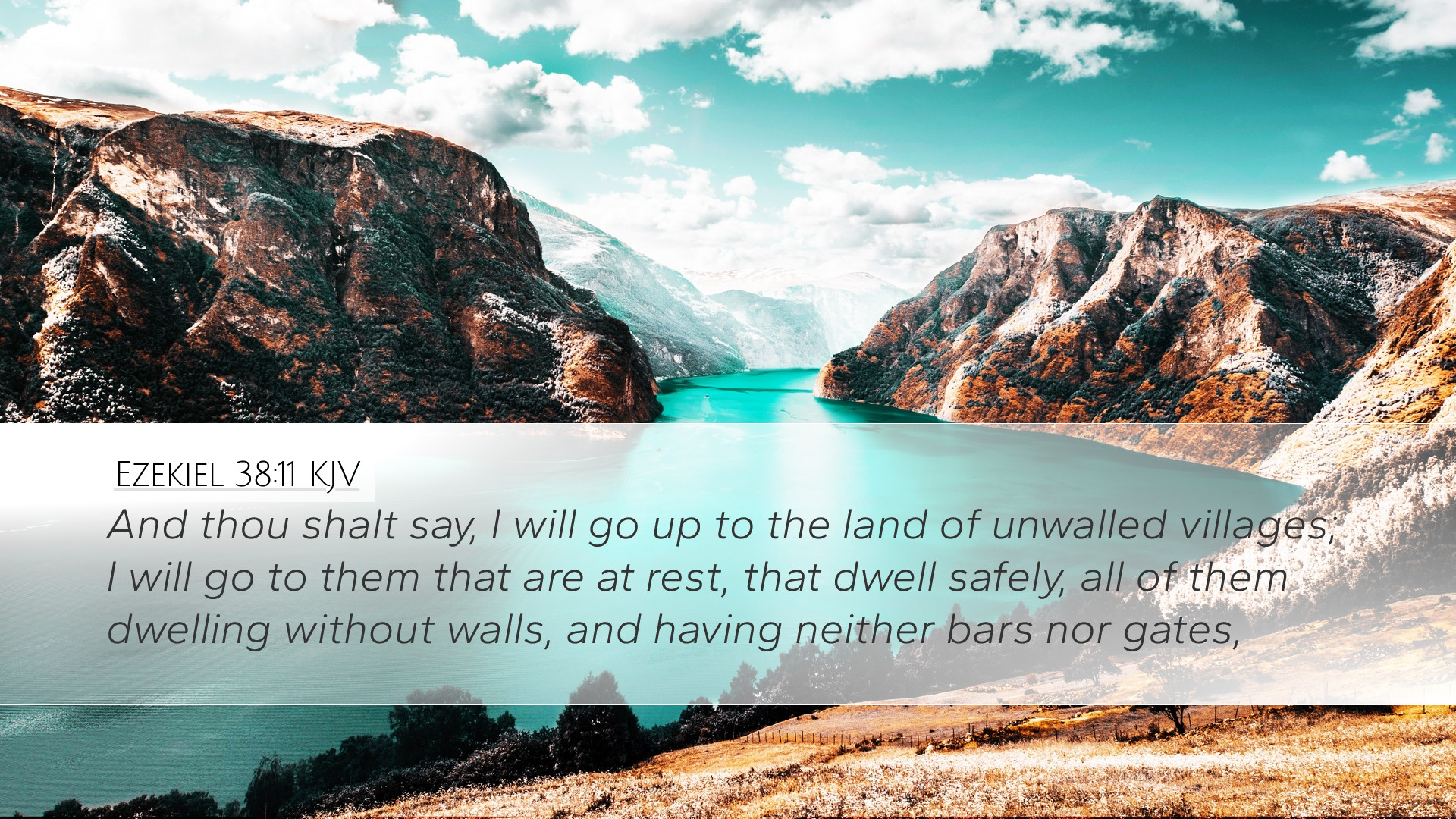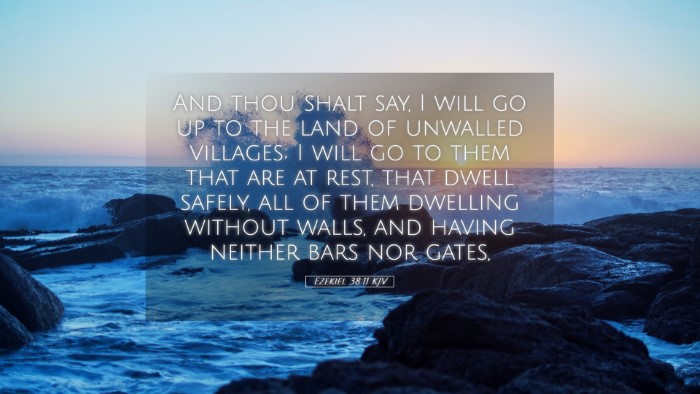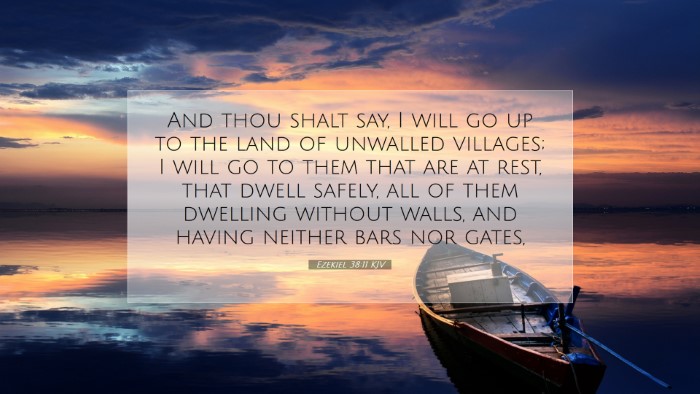Ezekiel 38:11 - Commentary Summary
Bible Verse: "And thou shalt say, I will go up to the land of unwalled villages; I will go to them that are at rest, that dwell safely, all of them dwelling without walls, and having neither bars nor gates." (Ezekiel 38:11, KJV)
Contextual Background
This verse is situated within a larger prophetic context in Ezekiel, where God declares His intentions regarding future events and confrontations involving Israel and its enemies. The prophecy against Gog highlights themes of complacency, security, and divine intervention.
Matthew Henry's Insight
Matthew Henry emphasizes the complacency of the people described in this verse, suggesting that their unwalled state represents a false sense of security. He notes that the phrase "unwalled villages" indicates a society that has become comfortable and overly confident in their safety, unaware of impending threats.
Henry also points out the spiritual implications of this security; the people have forgotten their dependence on God and His protection. He warns that such an attitude can lead to vulnerability as they face external threats.
Albert Barnes' Analysis
Albert Barnes provides a detailed examination of the imagery used in this verse. He highlights that "land of unwalled villages" signifies peace and tranquility, describing a situation where the inhabitants believe they are safe from attack due to their current state of being unassailed.
Barnes adds that this complacency reflects a broader spiritual neglect, where Israel might feel secure because they are in a time of rest without recognizing that such peace can be fleeting. He underscores that God's judgment often comes at times when people least expect it, reinforcing the importance of vigilance and spiritual preparedness.
Adam Clarke's Commentary
Adam Clarke delves into the setting of the verse, remarking on the socio-political implications of unwalled villages during the time of Ezekiel. He explains that fortifications were common for protection, and the absence of walls signifies a lack of concern for security due to perceived strength or peace among the people.
Clarke notes that this security is deceptive and that the invader (Gog) sees an easy target among the unsuspecting populace. He interprets this as a cautionary tale, encouraging communities to remain alert to the dangers around them, both physical and spiritual, and to rely on divine protection rather than their own understanding of peace.
Thematic Reflections
The verse encapsulates themes of divine sovereignty, human complacency, and the necessity for vigilance in the life of faith. As it addresses the dangers of a false sense of security, it invites modern readers—pastors, theologians, and scholars—to reflect on their spiritual stance.
- Human Complacency: The message serves as a reminder not to assume safety and rest in personal strength or societal peace.
- Divine Sovereignty: God’s eventual intervention highlights His control over the nations and events.
- Need for Vigilance: Believers are called to remain alert to both physical and spiritual threats, maintaining a reliance on God’s protection.
Conclusion
Ezekiel 38:11 stands as a significant warning against complacency. The reflections from Matthew Henry, Albert Barnes, and Adam Clarke converge on the necessity for believers to foster an awareness of their reliance on God. The imagery of unwalled villages serves not only as a historical and prophetic illustration but also as a timeless reminder for the faith community to remain vigilant and aware of the realities of both divine protection and potential threats.


